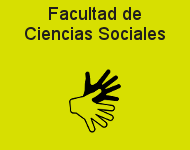Amado, Ana - Szurmuk, Mónica
En: http://revistascientificas.filo.uba.ar/index.php/mora/article/view/5208/4699
En: Mora; Núm. 23 (2017)
Tipo de documento: info:eu-repo/semantics/article | Formato: application/pdf
Editor: Instituto Interdisciplinario de Estudios de Género - FFyL-UBA
Fuente: Revistas Científicas de FILO
Bianchi, Paula Daniela
En: http://revistascientificas.filo.uba.ar/index.php/mora/article/view/5222/4713
En: Mora; Núm. 23 (2017)
Tipo de documento: info:eu-repo/semantics/article | Formato: application/pdf
Editor: Instituto Interdisciplinario de Estudios de Género - FFyL-UBA
Fuente: Revistas Científicas de FILO
Daich, Deborah
En: http://revistascientificas.filo.uba.ar/index.php/mora/article/view/10109/8825
En: Mora; Núm. 26 (2020)
Tipo de documento: info:eu-repo/semantics/article | Formato: application/pdf
Editor: Instituto Interdisciplinario de Estudios de Género - FFyL-UBA
Fuente: Revistas Científicas de FILO
Páramo Bernal, Milena
En: http://revistascientificas.filo.uba.ar/index.php/mora/article/view/10111/8827
En: Mora; Núm. 26 (2020)
Tipo de documento: info:eu-repo/semantics/article | Formato: application/pdf
Editor: Instituto Interdisciplinario de Estudios de Género - FFyL-UBA
Fuente: Revistas Científicas de FILO
Martynowskyj, Estefania - Ferrario, Constanza María
En: http://revistascientificas.filo.uba.ar/index.php/mora/article/view/12709/11940
En: Mora; Vol. 1 Núm. 29 (2023)
Temas: Amorlibrenses; Gateros; Romantic order; (In)fidelity; Masculinity ; Amorlibrenses ; Gateros ; Romantic Order ; (In)fidelity ; Masculinity ; Amorlibrenses ; Gateros ; Orden Romántico ; (In)fidelidad ; Masculinidad
Contenido: The massification of feminisms since 2015 has intensified a series of debates around gender relations, the forms of organization of intimate life, the regulation of sexuality and masculinity. The crisis of the romantic order pointed out by various researchers, has become an object of theming for a heterogeneous range of actors in different public arenas.In this work we analyze the disputes of meanings about certain norms that regulate sex-affective relationships between men and women, based on the qualitative analysis of the discourses produced by a group of people who practices consensual non-monogamy and adhere to the ideals of free love and another of men who they pay for sex and are recognized as gateros. These groups, which seem to be located at opposite poles, stress the hegemonic model of the couple in different ways. Based on a series of in-depth interviews with members of a free love group in a Buenos Aires city and a virtual ethnography in an Argentine forum for the exchange of commercial sex experiences, we analyze the meanings that the actors produce on notions such as those of monogamy / polyamory, fidelity / infidelity, commerce / affection-love, equality / asymmetry.
...ver más Tipo de documento: info:eu-repo/semantics/article | Formato: application/pdf
Editor: Instituto Interdisciplinario de Estudios de Género - FFyL-UBA
Fuente: Revistas Científicas de FILO
Gago, Verónica
En: http://revistascientificas.filo.uba.ar/index.php/mora/article/view/12330/11306
En: Mora; Núm. 28 (2022)
Tipo de documento: info:eu-repo/semantics/article | Formato: application/pdf
Editor: Instituto Interdisciplinario de Estudios de Género - FFyL-UBA
Fuente: Revistas Científicas de FILO
Ferloni, Martina - Nosseinte, Lucía
En: http://revistascientificas.filo.uba.ar/index.php/mora/article/view/8118/11301
En: Mora; Núm. 28 (2022)
Temas: The purpose of this essay is to think of the power structure that articulates within the economy (Illouz) or social circulation (Ahmed) of love; and also to observe the so-called “affective responsibility” as a way of “reaction” to that structure. The political and social feminist theory has identified libidinal economy as one of the most fundamental sources of social opression based on gender. It was probably Carole Pateman who first offered a modern genealogy of that oppression, going back to social contract theories and the liberal notion of consent. Paradoxically, by the time in which Pateman offered her sexual contract theory, the marriage institution was on crisis, as it would be demonstrated by the sociologist Eva Illouz. Nowadays, marriage coexists with new forms of sexoaffective filiation that are not less oppressive. Historically feminism has been pessimistic regarding the possibility of thinking non oppressive ways of affective, cisheterosexual relations. Nonetheless, we arguewould like to propose that the idea of “affective responsibility”, which has recently been very popular in Argentina, is presented as a way of reaction to oppression. To the extent of giving more specificity to this notion, we will lean on Sara Ahmed and Judith Butler’s work. ; Aafectos -, emoción -, amor -, contrato -, responsabilidad afectiva
Contenido: El propósito de este ensayo es pensar la estructura de poder que se articula en la economía (Illouz) o circulación social (Ahmed) del amor; así como también observar la llamada “responsabilidad afectiva” como forma de “reacción” a esa estructura.
La teoría política y social feminista ha identificado en esa economía libidinal una de las más fundamentales fuentes de opresión social basadas en el género. Fue probablemente Carole Pateman quien primero ofreció una genealogía moderna de esa opresión, remontándola a las teorías del contrato social y la noción liberal de consenso. Paradójicamente, para la época en que Pateman ofrece su teoría del contrato sexual, la institución matrimonial se encontraba en jaque, como se ocupó de mostrarlo la socióloga Eva Illouz. Hasta el día de hoy, el matrimonio convive con nuevas formas de filiación sexoafectiva no menos opresivas. Históricamente, el feminismo ha sido pesimista respecto a la posibilidad de pensar formas no opresivas de las relaciones sexoafectivas cisheterosexuales. No obstante, planteamos que la idea de “responsabilidad afectiva”, muy popularizada recientemente en Argentina, se presenta como una vía de reacción de la opresión. A efectos de dar mayor especificidad a esta noción, nos apoyaremos en las obras de Sara Ahmed y Judith Butler.
...ver más Tipo de documento: info:eu-repo/semantics/article | Formato: application/pdf
Editor: Instituto Interdisciplinario de Estudios de Género - FFyL-UBA
Fuente: Revistas Científicas de FILO
Szurmuk, Mónica - Torre, Claudia
En: http://revistascientificas.filo.uba.ar/index.php/mora/article/view/6318/5605
En: Mora; Núm. 24 (2018)
Tipo de documento: info:eu-repo/semantics/article | Formato: application/pdf
Editor: Instituto Interdisciplinario de Estudios de Género - FFyL-UBA
Fuente: Revistas Científicas de FILO
Fontana, Patricio
En: http://revistascientificas.filo.uba.ar/index.php/mora/article/view/11110/9991
En: Mora; Núm. 27 (2021)
Tipo de documento: info:eu-repo/semantics/article | Formato: application/pdf
Editor: Instituto Interdisciplinario de Estudios de Género - FFyL-UBA
Fuente: Revistas Científicas de FILO
Gutiérrez, María Alicia
En: http://revistascientificas.filo.uba.ar/index.php/mora/article/view/11106/9987
En: Mora; Núm. 27 (2021)
Tipo de documento: info:eu-repo/semantics/article | Formato: application/pdf
Editor: Instituto Interdisciplinario de Estudios de Género - FFyL-UBA
Fuente: Revistas Científicas de FILO






























